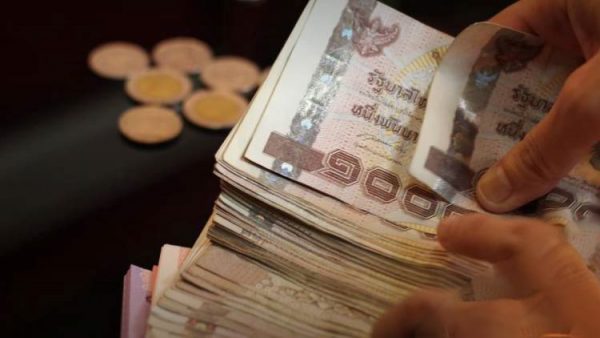As foreign investors exit bond market, Thai government faces fund-raising challenge

The Thai government may find itself bearing a higher cost of borrowing due to unfavorable conditions in the local debt market.
More 34.3 billion baht of capital has flown out of the Thai bond market in the first quarter this year as foreign investors sold government bonds. Outstanding government bonds held by foreign investors dropped to 900 billion baht, just 5.3 per cent of the total outstanding 17 trillion baht, according to the Thai Bond Market Association (ThaiBMA).
The wide gap between local and US rates is one of the factors making Thai government bonds less appealing. The Bank of Thailand has set the policy rate at 2.5 per cent against the US’s 5.25-5.5 per cent. The temptation of far higher returns in US government bonds has led to foreign investors leaving the Thai bond market. For example, a 2-year Thai government bond yield is 2.15 per cent, while the yield on US government bonds is more than double at 4.59 per cent at the end of the first quarter.
Borrowing cost
The weakening of the baht has also precipitated capital outflows as investors worry about depreciation in the value of Thai assets if the baht continues to weaken. The baht has fallen to nearly 37 against the dollar. The uncertainty over a US rate cut also complicates the market. The longer the US persists with its high interest rate policy, the stronger the dollar, and correspondingly weaker the baht.
The high rate policy pursued by the US and European countries translates into higher cost of borrowing in global markets.
“In turn, it also makes the cost of borrowing higher in Thailand,” Supavud Saicheua, advisor to Kiatnakin Phatra Financial Group, warns. The government needs to borrow 693 billion baht to finance its budget deficit for this fiscal year after setting government expenditure at 3.48 trillion baht.
The additional borrowing is expected to impact liquidity in the local market, as the government will end up competing with private firms to raise funds. The state has an upper hand as government bonds are considered almost risk-free. However, as foreign investors sell government bonds in secondary markets, a new batch of government bonds may be less appealing unless it offers a higher coupon rate.
Large firms with higher credit ratings, such as an AAA, would not have difficulty raising funds via bond issuance, but those with lower credit ratings may find the going tough.
“The bond data in the first quarter suggested that investors opted for quality,” Somjin Sornpaisarn, president of the ThaiBMA, said, referring to investors subscribing to bonds with a higher credit rating rather than high-yield bonds. For instance, junk bonds offer a higher coupon rate.
The yield curve of 5-year corporate bonds with top AAA to A ratings dropped by 15-21 basis points from the end of last year. Yield of AAA-rated bonds was at 2.9 per cent, AA at 3.17 per cent, and A at 3.44 per cent at the end of the first quarter. By comparison, yields of corporate bonds with BBB+ and BBB rose to 4.68 per cent and 5.46 per cent respectively.
Bond yield moves opposite to the bond price — a high yield means investors are dumping bonds due to worries about the bleak market outlook.
Ample liquidity
Somjin was optimistic that the government and Thai firms could raise funds via the local market due to ample liquidity. He said corporate bond issuance of 900 billion baht to 1 trillion baht had been forecast for this year. Corporate bond issuance in the first quarter of 2024 totaled 207.13 billion baht.
Outstanding bonds at the end of the first quarter stood at 17 trillion baht, a 3 per cent rise from the end of last year. Newly issued government bonds and by the Bank of Thailand largely contributed to the rise.
Among corporate bonds, most of them were investment grade — AAA to BBB- — ratings. The top three industries that raised funds via the bond market were: real estate, finance and securities, and food and beverage.
Emerging India’s bonds
Other factors investors are paying more attention to is the emergence of India as an alternative investment destination for those diversifying their investment out of China. India achieved an economic growth rate of 7.2 per cent last year compared to China’s 5.2 per cent.
US-based banker JPMorgan has said it would be adding India’s bonds to the JPMorgan Government Bond Index-Emerging Markets (GBI-EM) in June.
It would be India’s first-ever inclusion in a global bond index.
Bloomberg Index Services also announced it would be adding Indian government bonds to its Emerging Market Local Currency Government Index from January 31, 2025.
“These have impacted other bond markets, including Thailand,” said Somjin.
He, however, said the local market was resilient and working hand in hand with banks and the stock market, the key institutions allocating funds to drive the economy.
He said he was still optimistic about the role of the local bond market, as lessons had been learned with the evolving market, he added.
Thai PBS World’s Business Desk






